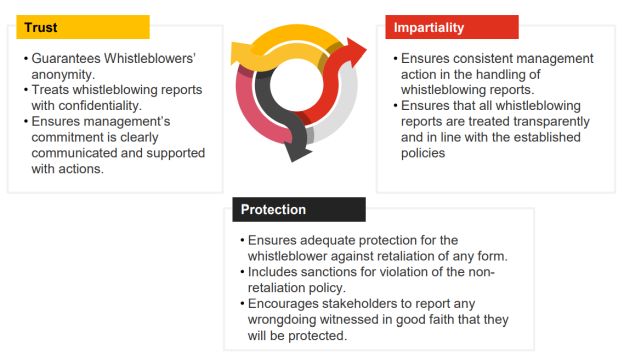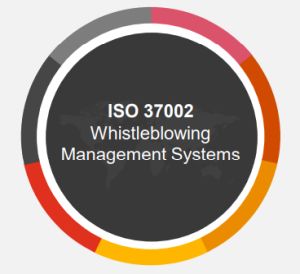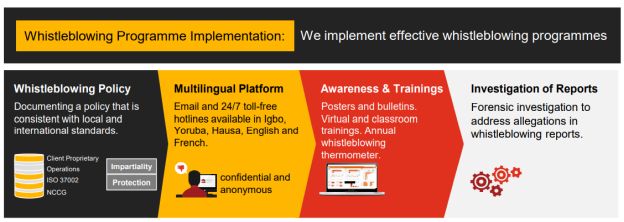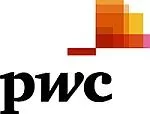Principle 19 of the Nigerian Code of Corporate Governance ("NCCG") 2018 requires that all organisations operating in Nigeria implement effective whistleblowing programmes. Whistleblowing programmes help organizations become aware of suspected wrongdoing or risk of wrongdoing.
Wrongdoing includes, but not limited to, fraud, theft, bullying, harassment, violation of policies or regulations, etc. In 2022, the Association of Certified Fraud Examiners (ACFE) reported that 42% of occupational fraud were detected through whistleblower reports, with more than half of these coming from employees of the victim organisations1
Effective whistleblowing programs
An effective whistleblowing program is built on three (3) core principles: trust, protection and impartiality.

Such programs provide organisations with the following benefits:

Although NCCG 2018 did not provide a metric for assessing the effectiveness, a good indication of an ineffective whistleblowing programme is that the organisation is not deriving one or all of the aforementioned benefits from its whistleblowing program. A well designed whistleblowing programme incorporates periodic evaluation of its effectiveness
A whistleblowing programme becomes ineffective when any of the core principles is breached. According to a research study2 , majority of employees surveyed felt they had direct evidence of wrongdoing but did not report. Employees' unwillingness to report incidents of misconduct is a strong indication that one of the core principles of an effective whistleblowing programme has been breached. The table below highlights examples of reasons provided by employees on why they chose not to report incidents of wrongdoing they witnessed and the core principle relating to each reason.
| Why people may not blow the whistle... | Core principle affected |
| Fearful of their identity being revealed and of being labelled a snitch | Trust |
| Lack of awareness about whistleblowing channels | Trust |
| Fear of victimization and retaliation | Protection |
| Fear that report would not be treated with confidentiality | Protection |
| Skepticism about management's commitment to take action | Impartiality |
| Reports on management/supervisors are not treated | Impartiality |
How many of these questions can you answer:
- Does your organisation have a whistleblowing programme? How effective is your organization's whistleblowing programme?
- Do your employees and other stakeholders trust your organisation to do the right thing when they report incidents of wrongdoing?
Here's how we can help...
PwC will support your organisation's whistleblowing program in the following ways:

Current State Assessment
We assess organisations' whistleblowing programmes in line with global and regional standards (such as ISO 37002 – Whistleblowing Management Systems and the Nigerian Code of Corporate Governance 2018) as well as industry-specific regulations. We recommend customized solutions unique to each organisation's requirements.

Footnote
1. https://acfepublic.s3.us-west-2.amazonaws.com/2022+Report+to+the+Nations.pdf
Originally published 20 September 2023
The content of this article is intended to provide a general guide to the subject matter. Specialist advice should be sought about your specific circumstances.


